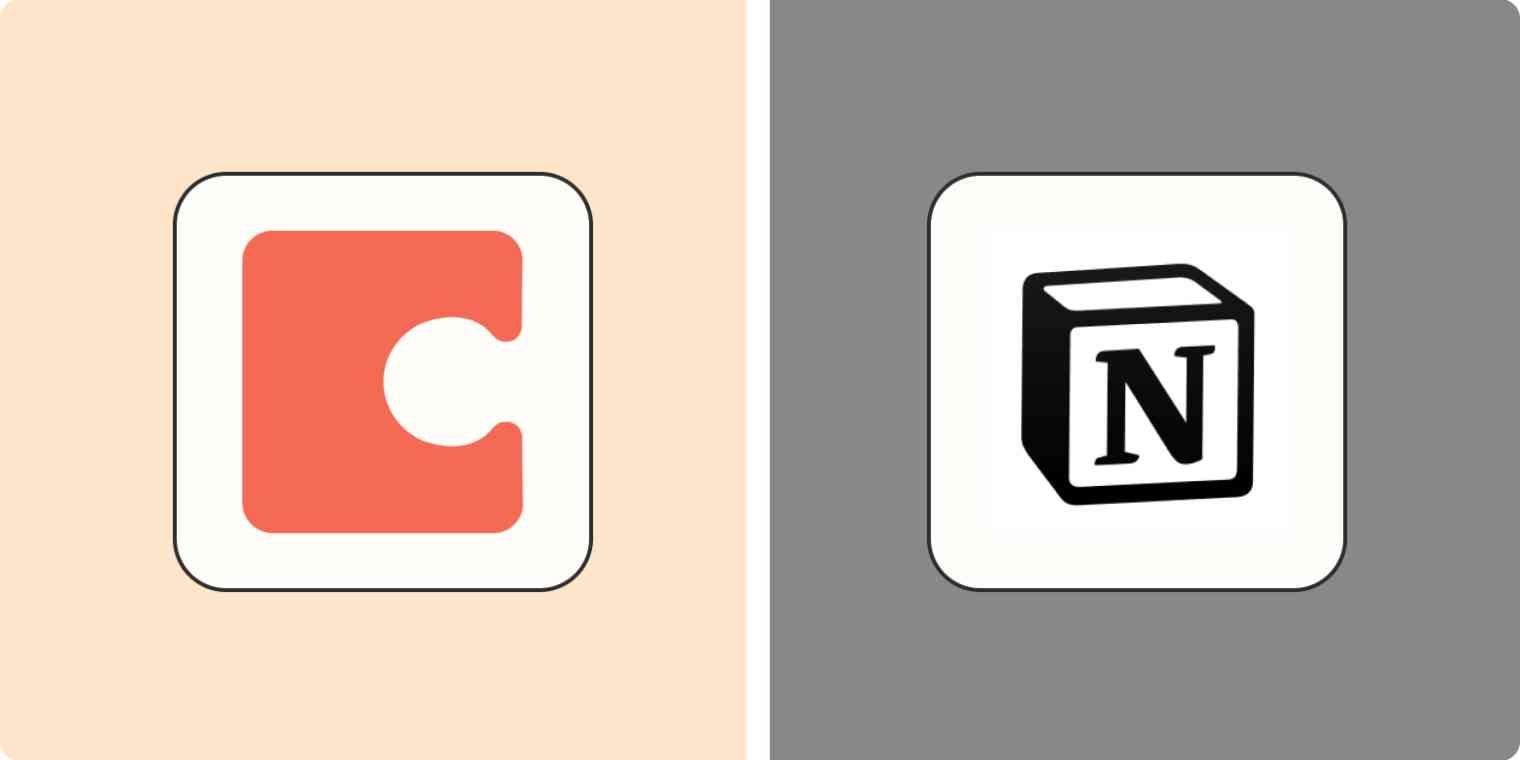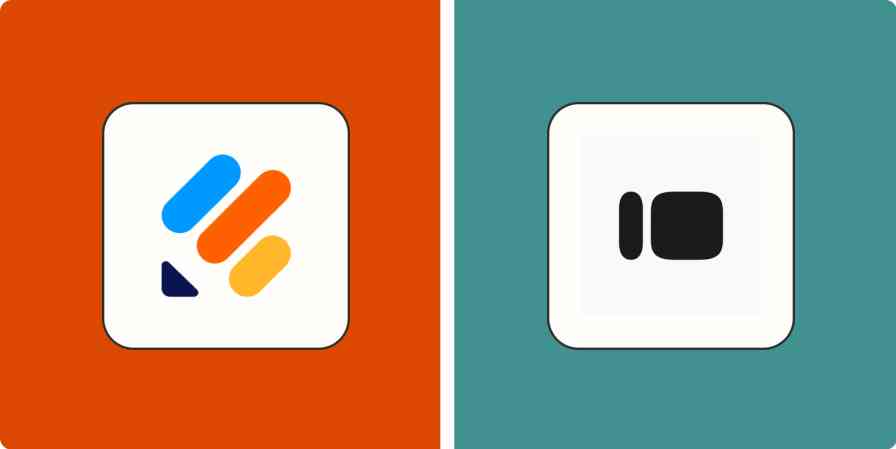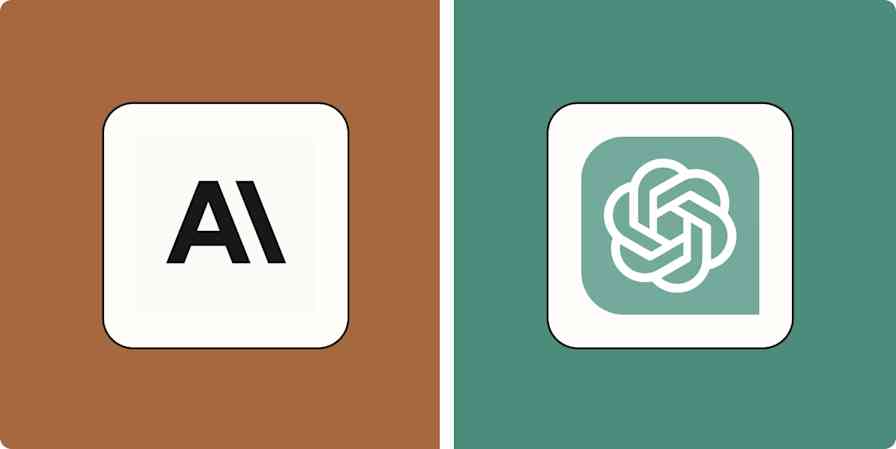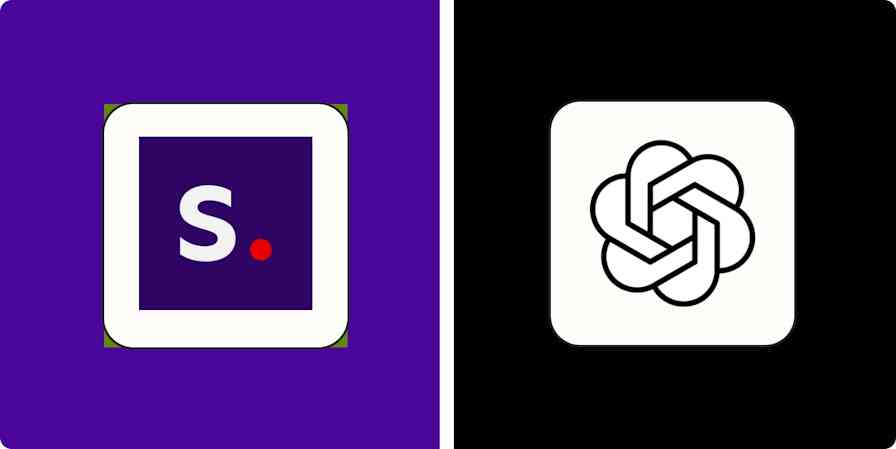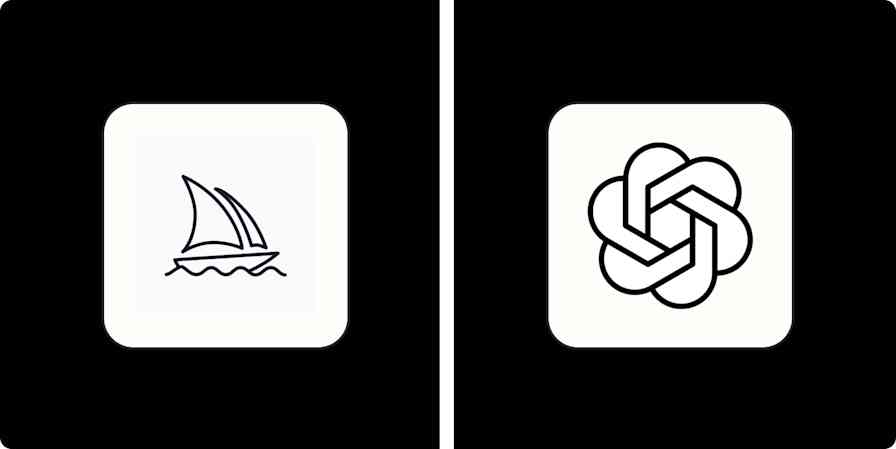I've been using Notion to take notes and organize my life for a few years now. But after hearing enough rumblings about Coda as an equally powerful alternative, I decided to take it for a spin to see how it stacks up against my tried-and-true.
I spent time comparing the two tools, feature for feature. Here's what I discovered—and how to decide which is right for you.
Notion vs. Coda at a glance
Coda and Notion serve similar purposes. At the end of the day, though, the best app comes down to what you're using it for.
As one Reddit user put it, Notion is better for handling documents and wikis; Coda is better for databases and automation.
If you want a detailed breakdown of how Coda and Notion compare in practice, keep reading. But this summary will give you a quick overview of the subtle differences.
| Coda | Notion |
|---|---|---|
Ease of use | ⭐⭐⭐⭐ Slightly more powerful features, but comes with a learning curve | ⭐⭐⭐⭐ Easy to set up and intuitive to use |
Tables | ⭐⭐⭐⭐⭐ Advanced tables and databases with easy-to-use formulas; ability to sync table data across docs | ⭐⭐⭐ Simple tables and databases, but formulas are more complex to set up; basic data management features |
Collaboration | ⭐⭐⭐⭐ Real-time collaboration with unlimited editors, but limits to file-sharing size on a free account | ⭐⭐⭐⭐⭐ Real-time collaboration, but limited to 10 guests on a free account; no file-size limits |
Note-taking and text | ⭐⭐⭐⭐ Documents are structured with text-and-table integration | ⭐⭐⭐⭐⭐ Block-based editor is intuitive to use and makes moving text around really easy |
Cost | ⭐⭐⭐⭐ Limited free plan available; subscriptions with more powerful features start at $12/user/month | ⭐⭐⭐⭐ Robust free plan for individual users; subscriptions start at $10/user/month |
AI-powered tools | ⭐⭐⭐⭐⭐ AI assistant available for writing, editing, and populating tables, but usage is limited by credit system | ⭐⭐⭐⭐ AI writing assistant and AI-generated insights add-ons available, but these nearly double the cost |
Organization | ⭐⭐⭐⭐ Hub-style pages and subpages; data syncs across pages | ⭐⭐⭐⭐ Wiki-style doc structure; basic data syncing |
Integrations | ⭐⭐⭐⭐⭐ Over 1,600 available; integrates with Zapier | ⭐⭐⭐⭐ Over 80 available; integrates with Zapier |
Customer support | ⭐⭐⭐⭐ Expert-led support | ⭐⭐⭐⭐⭐ Community-led support |
Security | ⭐⭐⭐⭐ Robust security features available only on an Enterprise plan | ⭐⭐⭐ No end-to-end encryption |
Community | ⭐⭐ Yes, but nothing like what Notion has | ⭐⭐⭐⭐⭐ Strong community following with a variety of community-hosted events, groups, and forums |
Notion is easier to set up; Coda comes with a learning curve, but it's worth it
Setup
Notion is known for being intuitive to use and easy to set up. Once you create an account, you'll also have access to their Getting Started document, which gives you an easy-to-digest rundown of the basics. From there, the app does a good job of guiding you through the rest of its block-based editor as you use it.
Note: Everything in Notion is referred to as a block. Blocks include basic elements like text, checklists, and headings, as well as media types like images, web bookmarks, video, audio, code snippets, and files.
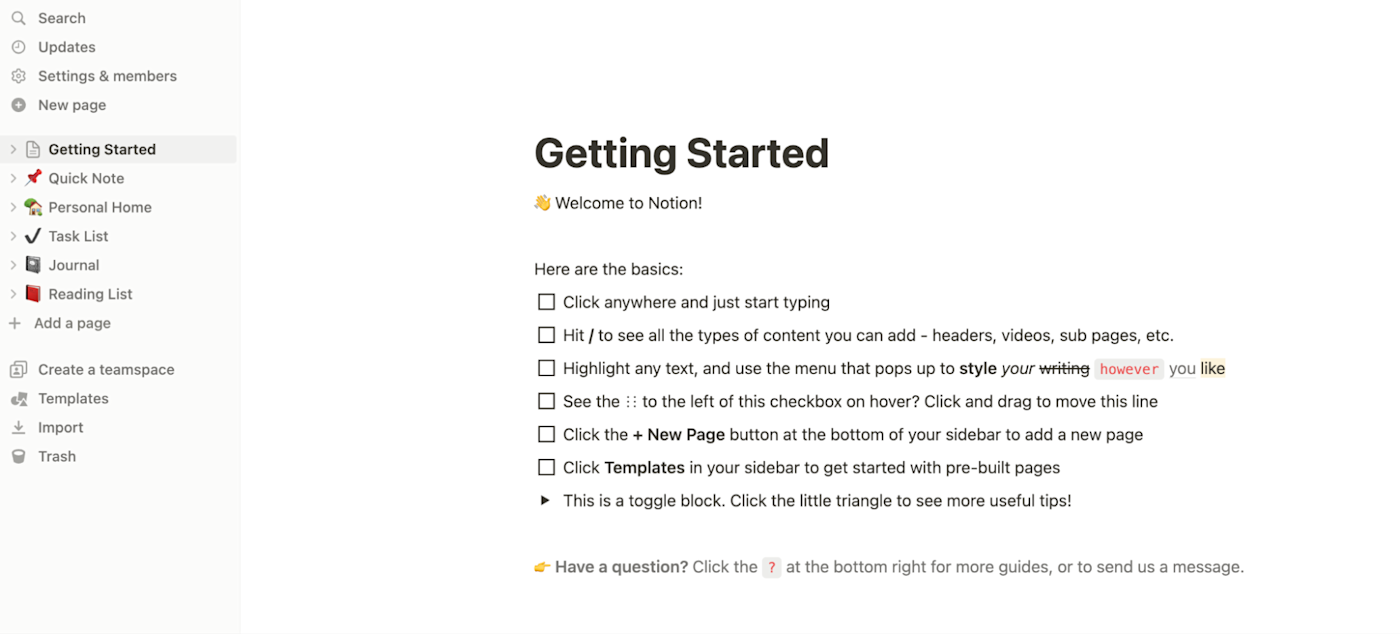
Coda, on the other hand, calls for a steeper learning curve. It provides plenty of fun and interactive guides to ease you in. But if you want to get the most out of its features, like advanced data integrations, taking the time to watch the how-to videos is the way to go.
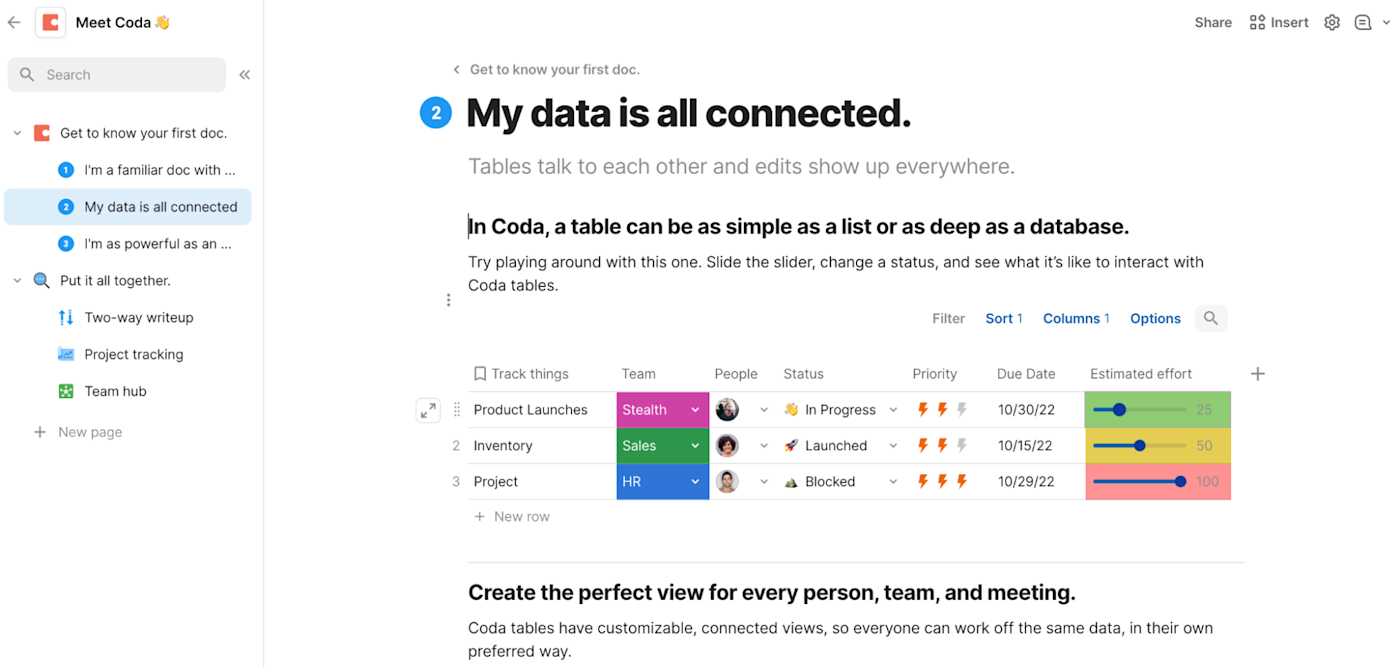
Sidebar navigation
In Notion, the sidebar lists all your pages and subpages and follows you everywhere you go. This makes it easy to navigate between documents and resource hubs from anywhere.
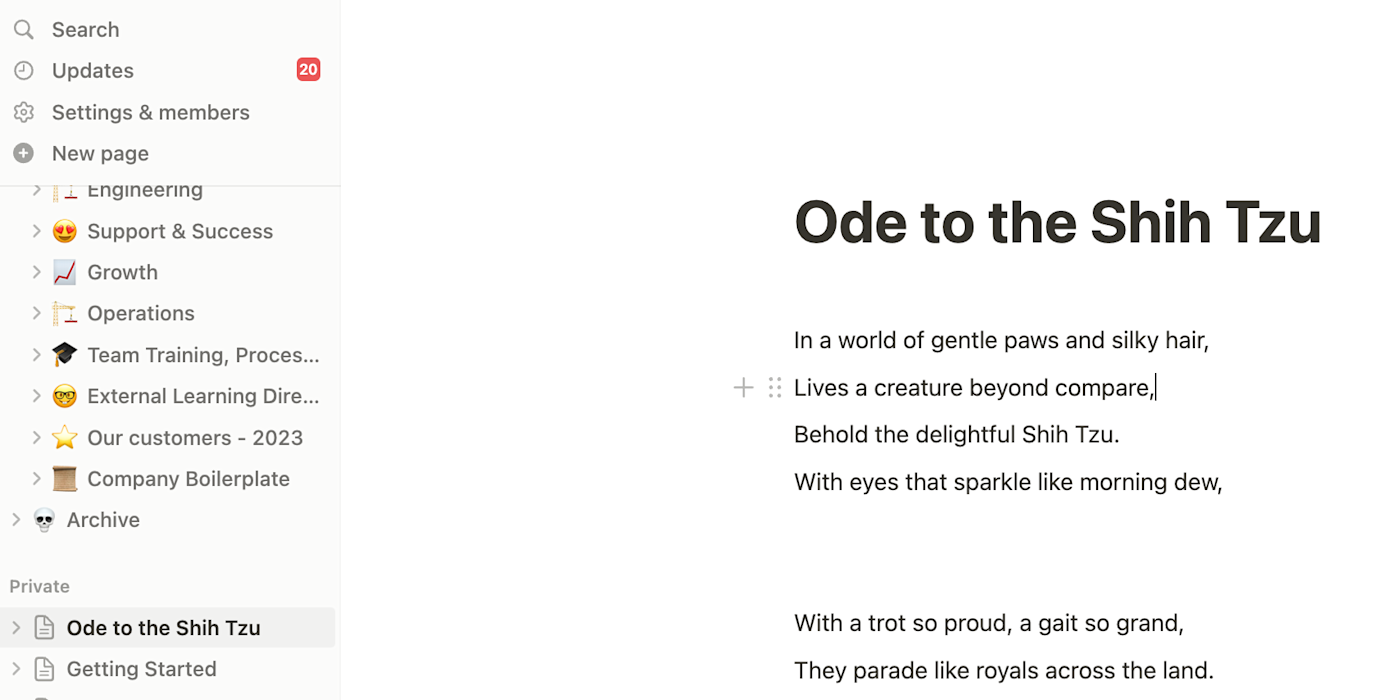
When you create a new document in Coda, on the other hand, a dedicated sidebar appears. All that you see in this sidebar is the top-level page (your new doc) and any of its subpages. Unlike in Notion, you can't access any other documents from that sidebar—you have to return to the homepage to do that. It's a small detail, but losing the comprehensive navigation menu can feel disorientating to a new user like me.
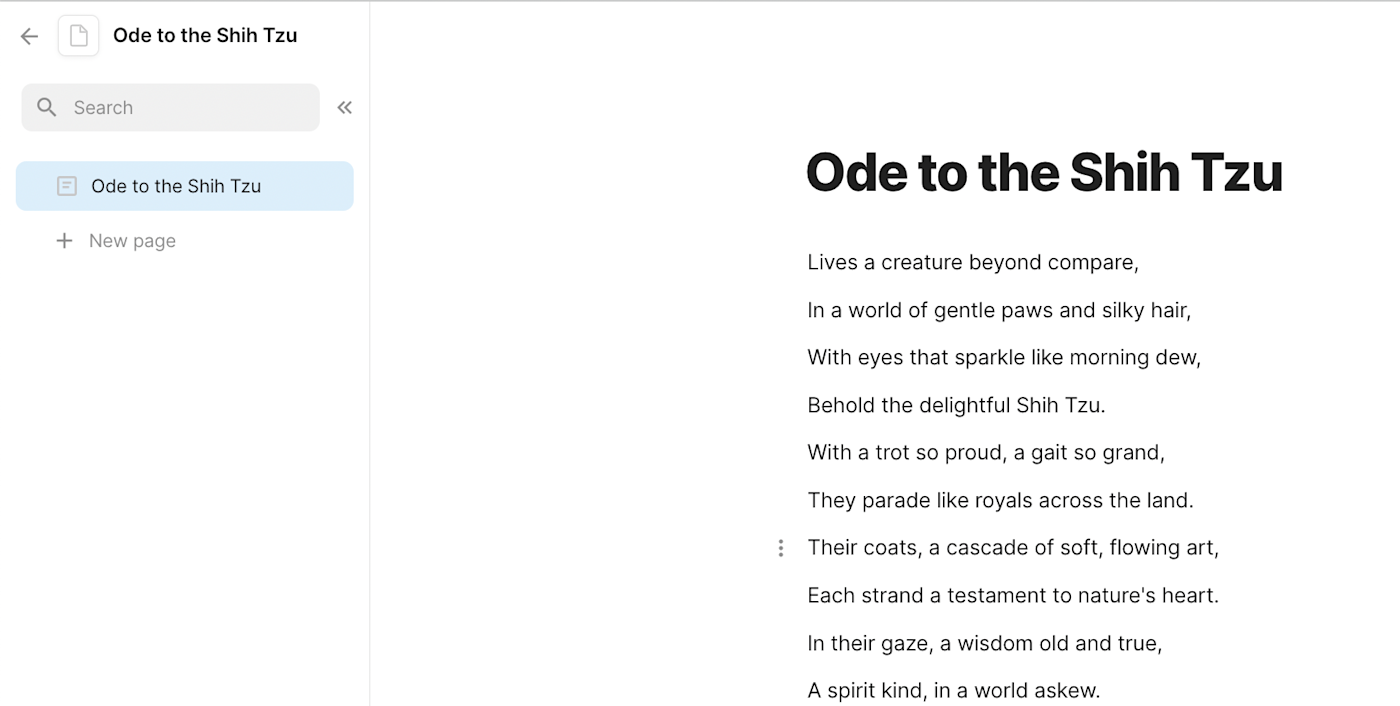
Templates
Both apps offer templates for common needs like to-do lists, meeting notes, and campaign briefs. But Notion offers more templates—over 10,000 of them—across a wide range of categories, including org charts and pitch decks for the workplace and expense trackers and resumes for personal use.
Coda's templates seem more focused on showing off the tool's advanced data integration options. They're impressive, but as a new user, I found them to be overwhelming. If all you need are straightforward templates so you can get to work, Notion certainly delivers.
Notion is better for text and note-taking; Coda is better for data management
Note-taking
While both apps position themselves as powerful note-taking apps (among other things), Notion's setup is more streamlined and intuitive, making it that much easier to create and edit content. Just click a page, start typing, and you're off. Coda's, on the other hand, is less so.
During testing, I also found Coda to run a bit slower when toggling between pages—likely because it's trying to process a lot more in the background. If you don't plan to create a lot of text-heavy or data-rich pages, this probably isn't a concern. But if you do, the loading time is worth noting.
Data management
When it comes to creating a data management system, Coda is the clear winner.
While tables in both apps seem quite similar visually, they're miles apart in terms of what you can do with them.
Here's an example of a project management chart in Notion:

And here's a similar one in Coda:
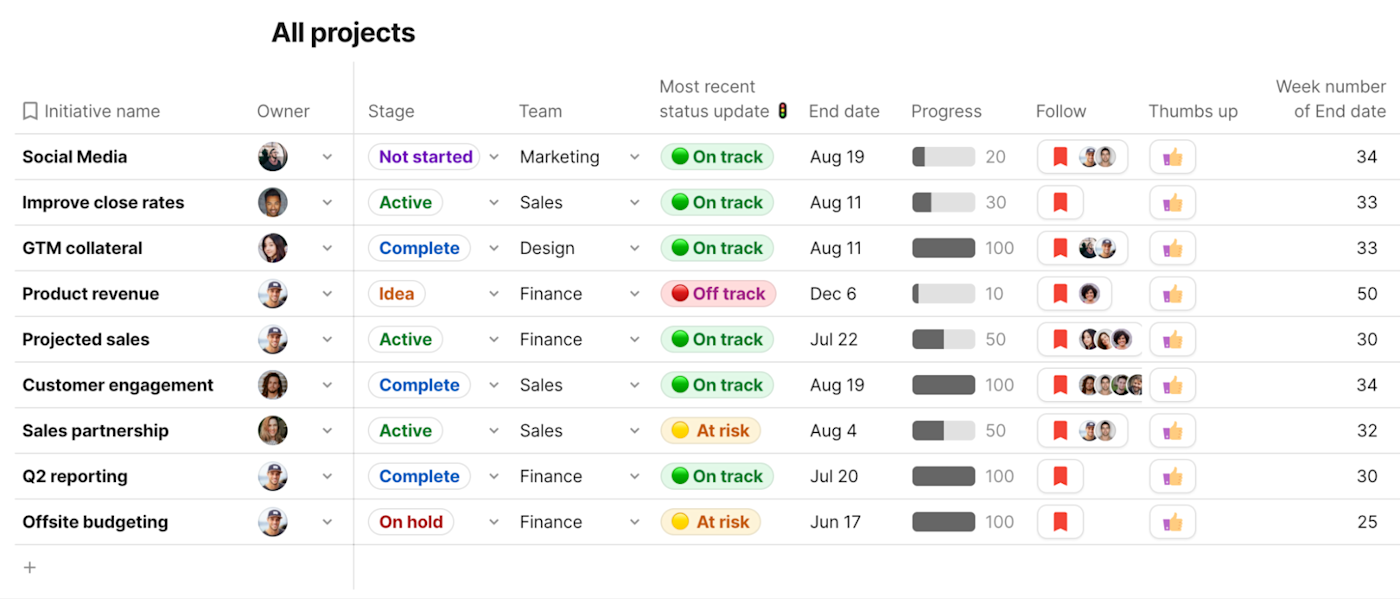
As you can tell, Coda offers more advanced features like voting systems, sliding scales, and progress trackers. Need to calculate data? With Coda, you can easily add formulas similar to how you would in a spreadsheet app. Here's a simple example:
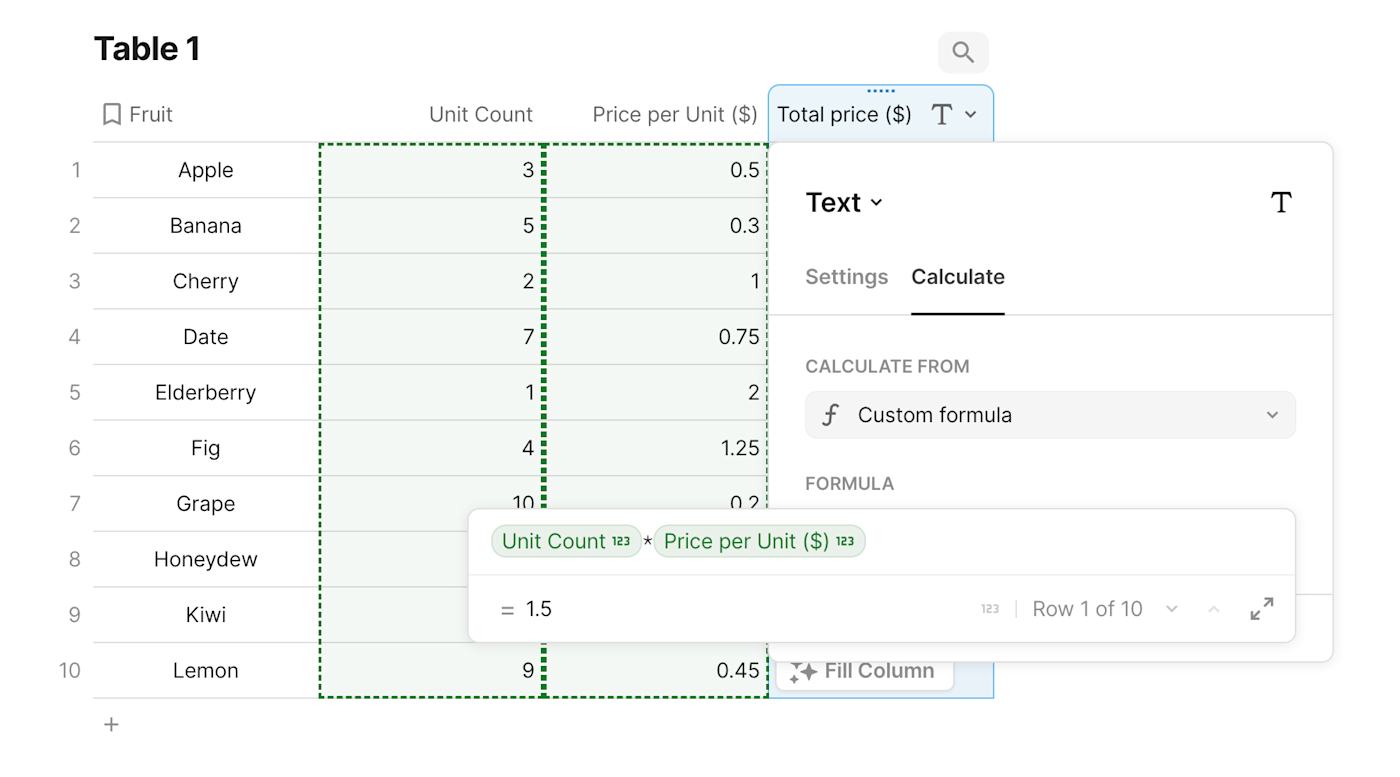
Despite recent updates, adding formulas in Notion is still quite complicated and less user-friendly. I've tried to do it a few times in the past and given up.
You can also connect tables, trackers, and documents stored across Coda pages. This way, you only have to update data in one spot, and Coda will dynamically update the rest. To take it one step further, Coda even lets you create and embed forms on your website that sync directly with your database. It's powerful enough that you could use it as a simple CRM solution.
Notion is more affordable for individual users; Coda is more cost-effective for teams
At first glance, Notion seems more affordable than Coda, and in some scenarios, it is. But it's not always so black and white.
For example, Notion Plus starts at $10/user/month; Coda Pro starts at $12/user/month. But Coda only charges per Doc Maker (users who actually create documents). Editors can collaborate for free. With Notion, every workspace user—no matter if they're just viewing or commenting on a doc—has to pay for a seat.
If you're a small team or individual user who works often with external collaborators, Notion is the more affordable solution. But if you have a lot of team members who need regular access to your whole workspace, Coda is the way to go.
Note: You can invite guests to review Notion documents for free, but they're able to access only individual articles you invite them to, not the whole workspace.
It's worth mentioning that both apps offer a free plan. In my experience, Notion's free plan gives individual users, like me, more flexibility to do what they need without paying a dime. For example, I can create unlimited documents and share them with up to 10 guests. But if you share a doc on Coda's free plan, the document is limited to only 50 objects (though it's not clear what counts as an object) and 1,000 rows.
Both are embracing AI, but Coda AI offers more bang for your buck
As with many other apps over the last year, Coda and Notion have quickly gone all in on artificial intelligence (AI), and as you might expect, they're using it in very similar ways. In both apps, AI powers three main functions: generating new content, editing existing content, and summarizing available content.
Zapier has other articles that offer an in-depth look into Notion AI and Coda AI, so here, I'm going to focus on how they differ.
Pricing
Coda and Notion take different approaches to how they charge for AI functionality, but at the end of the day, you're more likely to get more AI use for your money with Coda.
Notion charges an additional $10/user/month for the AI add-on, which gives you unlimited use of the feature. But if you're on the Plus plan, this means almost doubling your monthly cost per user. It's also worth noting that Notion AI may temporarily limit your access to AI features or slow down AI-powered performance if you request 30 or more AI responses within 24 hours.
The real sore point? Teams using Notion can't opt to pay for the AI add-on for select users. If you want AI in your workspace, you have to pay for the add-on for every user, even if they don't actively use it.
In contrast, every Coda Doc Maker automatically gets access to AI-powered features at no extra cost. There are some use limitations, though. Coda AI works using a credit system where each Doc Maker is given a set amount of credits each month—between 2,000 and 12,000, depending on your plan.
But how much can you actually get out of these credits? Here's a quick overview from Coda:
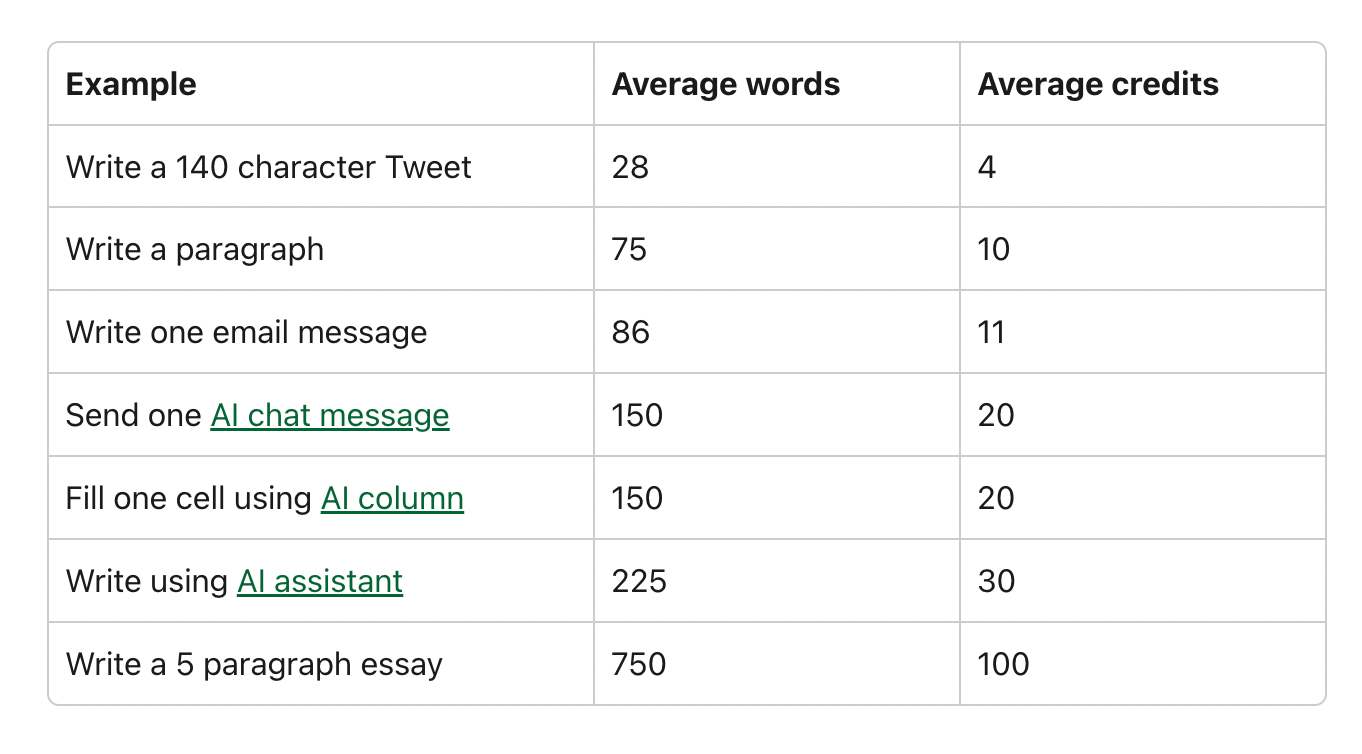
If you frequently use AI to power your work in Coda, the credit system might be too limiting. But keep in mind that you're getting access to the functionality for free, and Coda's ChatGPT integration can plug any gaps when you run out of credits for that month.
Languages
If you work with an international team, Notion and Coda offer a built-in, AI-powered translator, making it easier to collaborate on docs in the language you're the most comfortable in.
As of this writing, Coda can write, edit, and translate content in only four languages: English, Spanish, French, and German.
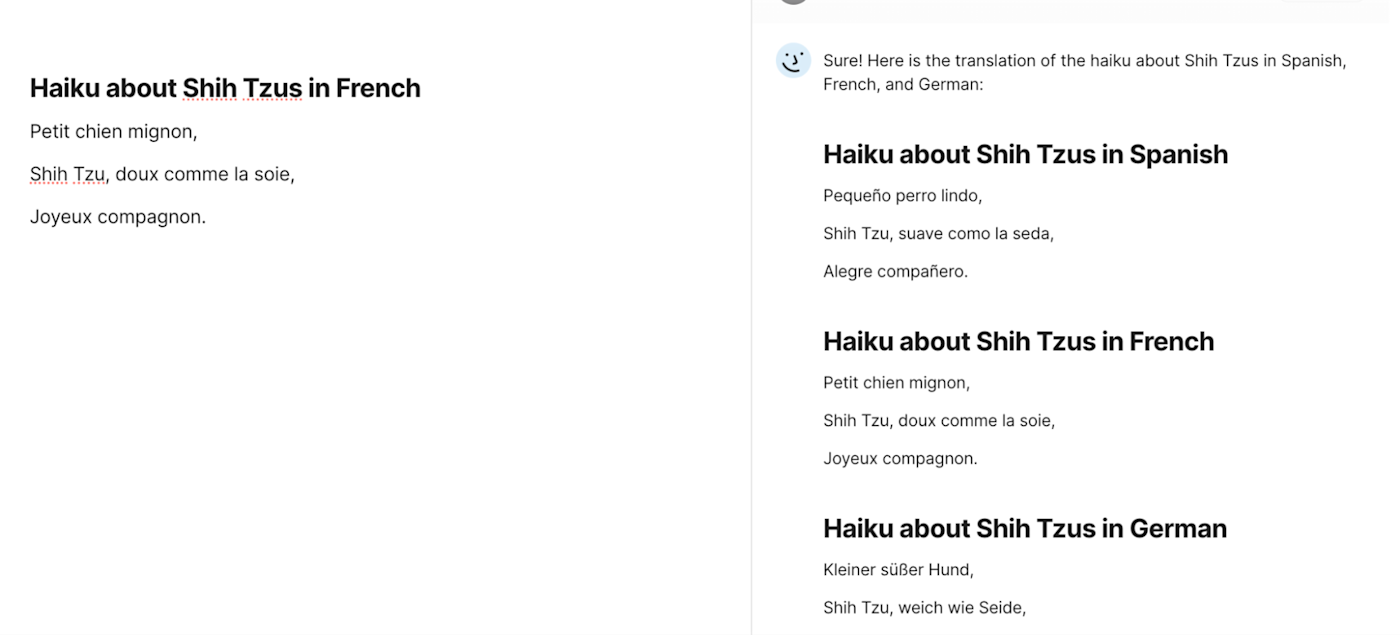
Notion, on the other hand, offers thirteen languages, including Korean, Japanese, and Italian.
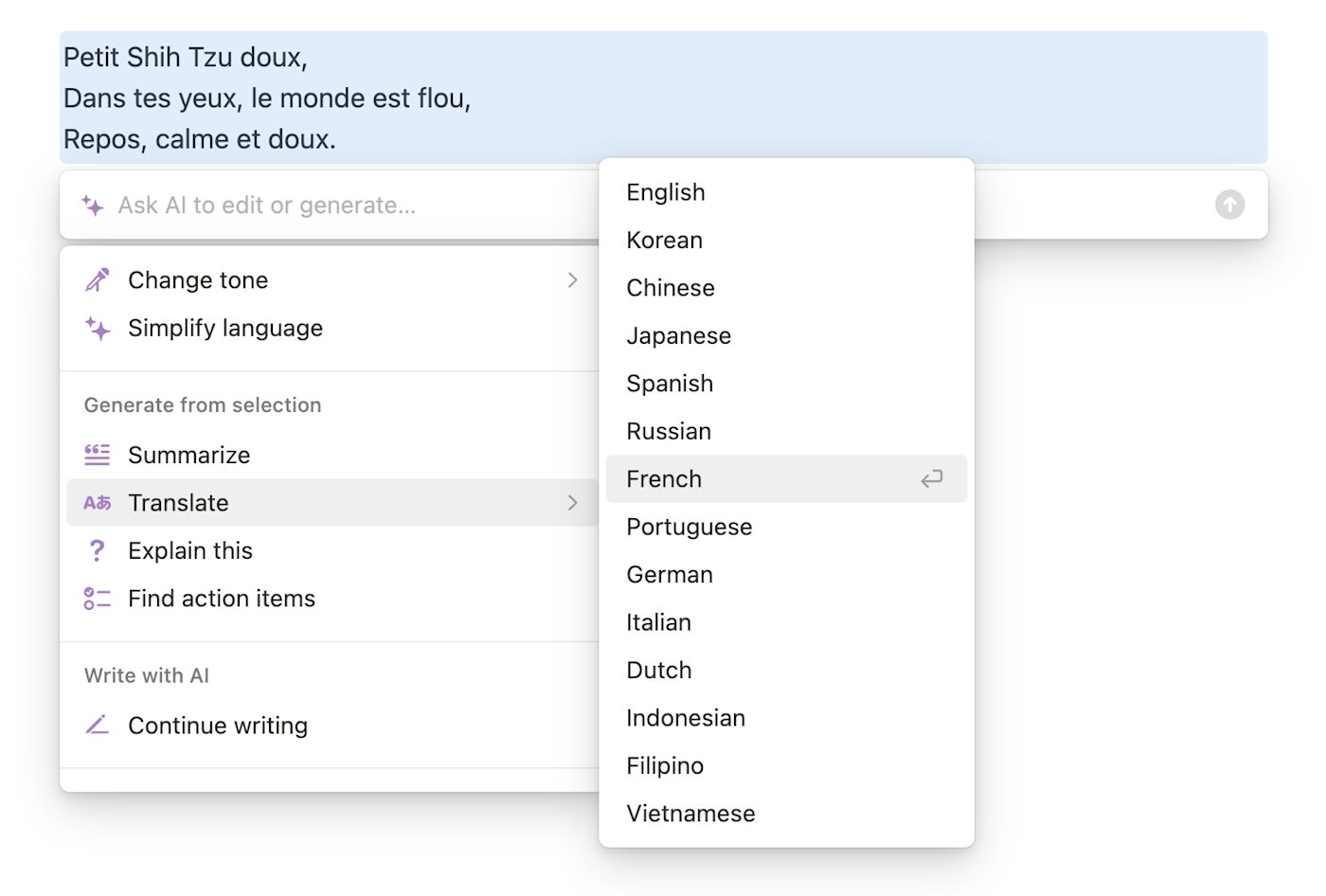
Of course, the right app for you, in this case, comes down to which languages you need to communicate in.
Notion offers community-led support; Coda offers expert-led support
If there's one thing that might convince you that Notion must be the best choice, it's its fanatic user following. If people love Notion so much that they create their own niche templates and host community events, it must be doing something very right.
If you have a support question, or you're looking for new ways to get more out of Notion, you're likely to find an answer in one of their many community-hosted groups or forums. Here's a small sample of what's currently available:
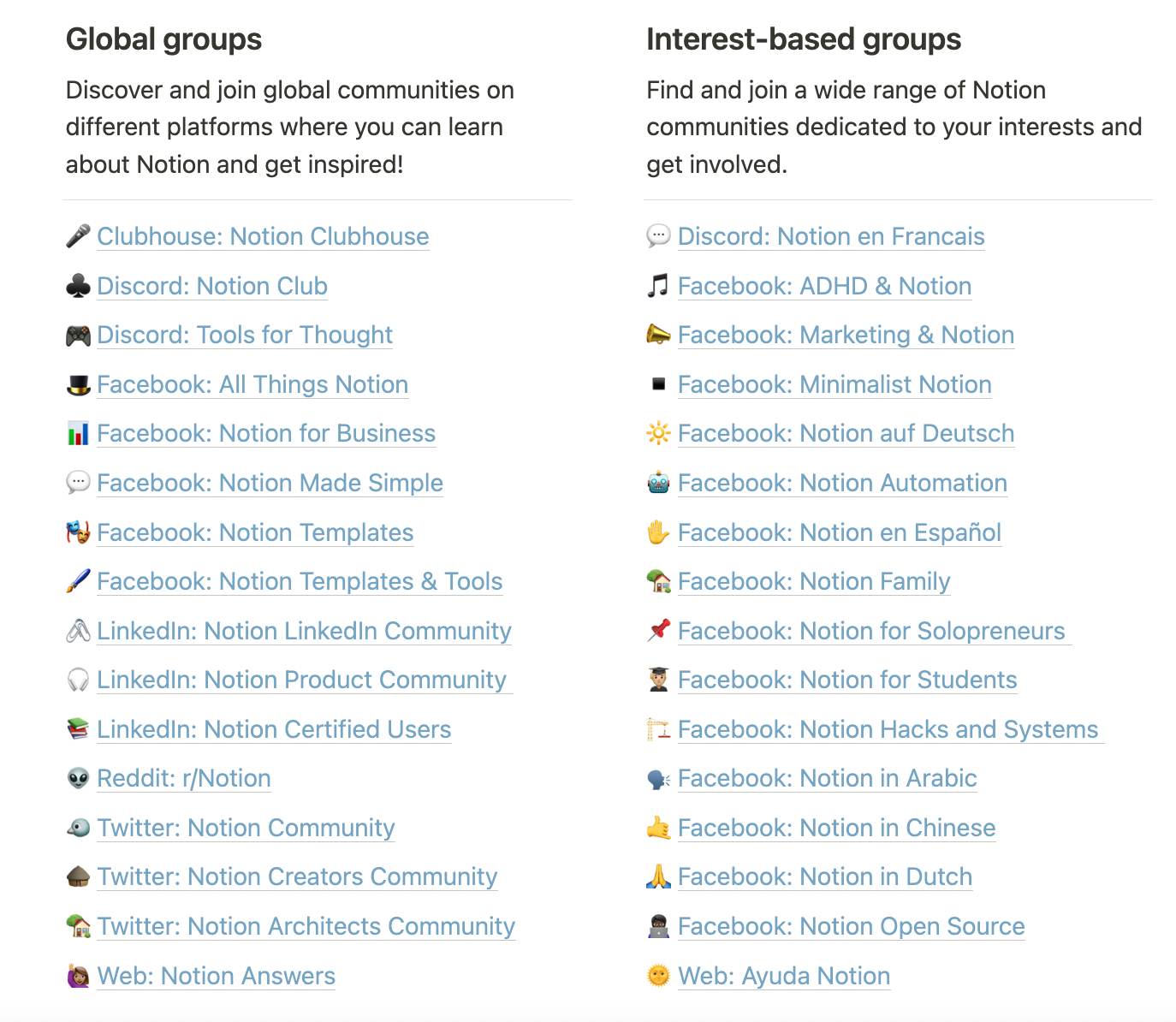
While Coda's user community doesn't even compare, it does take the cake for expert-led support. For example, on a Team plan, you get free group training sessions with Coda coaches. And on an Enterprise plan, you get access to your own success managers. This is a level of human support that Notion just doesn't offer.
Coda has more app integrations, but both connect to Zapier
When it comes to app integrations, Coda wins by a mile: it offers over 1,600 app integrations, while Notion offers a mere 80 or so. But both Coda and Notion connect to Zapier, so you can connect them with thousands of other apps to fill any gaps.
Once you've connected your apps, you can automate daily tasks like adding new calendar events or form responses to your database. Learn more about how to automate Notion, or get started with one of these pre-made workflows.
Add new Google Calendar events to databases in Notion
Add new Microsoft Outlook calendar events to Notion databases
Add new or updated Google Calendar events as new rows to your Coda docs
Send new Google Forms responses to Notion databases
To get started with a Zap template—what we call our pre-made workflows—just click on the button. It only takes a few minutes to set up. You can read more about setting up Zaps here.
Coda vs. Notion: The verdict
After all my testing, here's where I landed: I'm sticking with Notion. Not because Coda isn't a great app—it is. For me, though, Notion still wins in all the areas I need it to, like note-taking and affordability.
But my needs aren't your needs. Here's a quick recap of how to decide which one is right for you.
Notion is the better option if:
You're an individual user or a small team
You need a tool that's easy to set up and use
You create a lot of text-heavy docs
You appreciate a strong app community
Coda is better if:
You're a large or scaling organization
You need the app for data management, not just text
You're willing to spend a bit of time learning how to get the most out of its features
You prefer expert-led support
Related reading:
